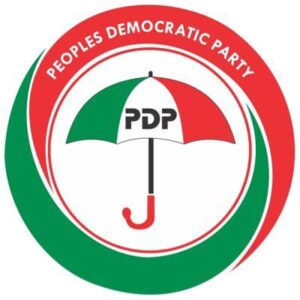
The Peoples Democratic Party (PDP) has strongly condemned President Bola Ahmed Tinubu’s declaration of a state of emergency in Rivers State, describing the move as unconstitutional and an attack on democracy.
In a statement released on Tuesday, March 18, PDP National Publicity Secretary, Hon. Debo Ologunagba, insisted that the President had no legal authority to suspend a democratically elected governor. The party rejected what it called an attempt to “override the Constitution of the Federal Republic of Nigeria, 1999 (as amended) and undermine the votes and will of the people of Rivers State.”
President Tinubu had announced the emergency rule following reports of security threats in the state, citing alleged failure of Governor Siminalayi Fubara to address the situation. As part of the directive, Tinubu suspended Governor Fubara, his deputy, and all state lawmakers, appointing retired Vice Admiral Ibokette Ibas as the administrator of Rivers State for an initial six-month period.
The PDP, however, maintains that the crisis in Rivers State does not warrant a state of emergency, adding that Section 305 of the Constitution does not give the President the exclusive power to enforce such a decision without National Assembly approval.
“The unconstitutional declaration by President Tinubu of the suspension of the democratically elected Governor of Rivers State and appointment of an unelected individual is a clear attack on our nation’s democracy,” the PDP stated.
The party further alleged that the move was part of a larger plot to weaken opposition parties and impose an authoritarian one-party system in Nigeria. It warned Vice Admiral Ibas against taking any action that could threaten democratic governance in the state, emphasizing that Nigeria remains a democracy, not a military dictatorship.
The development has sparked reactions across the country, with legal experts and civil society organizations questioning the legality of the President’s actions. The Nigerian Bar Association (NBA) has also criticized the suspensions, arguing that a declaration of emergency does not dissolve a duly elected state government.
As the situation unfolds, all eyes remain on the National Assembly and the judiciary for the next course of action regarding the controversial emergency rule in Rivers State.




